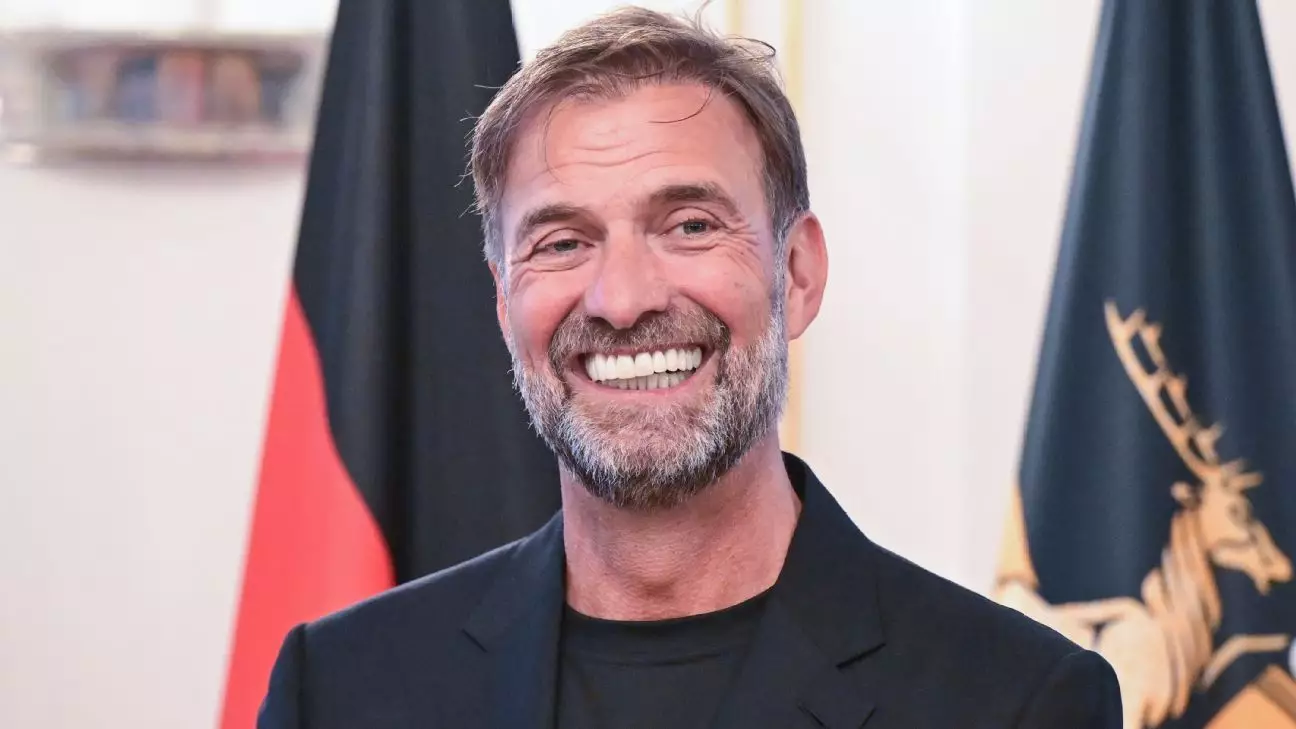In an unexpected turn of events, Jürgen Klopp has transitioned from the touchline to a more strategic role, assuming the position of head of global soccer for the Red Bull group. This change marks a significant departure from his previous role as the charismatic manager of Liverpool FC, where he led the team to considerable success, including a UEFA Champions League title and a long-awaited Premier League championship. Announced early on Wednesday, this new appointment signifies a shift in the legendary coach’s trajectory, inviting speculation about his future and the potential implications for the clubs under the Red Bull umbrella.
Klopp, known for his dynamic presence and tactical acumen, will now don a suit instead of his familiar baseball cap and tracksuit. Red Bull’s portfolio includes notable clubs such as RB Leipzig, RB Salzburg, New York Red Bulls, and Red Bull Bragantino. His primary responsibilities will involve overseeing the strategic vision of the Red Bull soccer initiative and providing mentorship to the organization’s coaches. Moreover, Klopp will play a crucial role in enhancing the group’s global scouting operations, leveraging his vast experience and reputation in the soccer community.
While Klopp’s current position may suggest a long-term commitment to the strategic side of soccer, whispers of a return to management are already surfacing. Reports indicate that he has negotiated a release clause within his contract that will enable him to take the helm of the German national team should the German Football Association (DFB) express interest. This raises intriguing questions about whether Klopp could lead Die Mannschaft at the 2026 World Cup, held jointly in Canada, Mexico, and the United States.
After bidding farewell to Liverpool, Klopp had alluded to needing a break from the relentless demands of high-level club management, citing both mental and physical fatigue. He expressed a desire to focus on his family and spend time with his newborn grandchild. Even as job offers, including one from the United States Soccer Federation for the head coach of the men’s national team, came his way, Klopp stood firm on his intention for a sabbatical. However, his decision to join Red Bull could indicate that he is preparing to re-enter the fray sooner than previously expected.
Klopp’s foray into the executive side of soccer positions him uniquely within a culture that often sees former players transition swiftly into board roles. He arrives at Red Bull after a distinguished 23-year managerial career, distinguishing himself from others like Karl-Heinz Rummenigge and Oliver Bierhoff, who made similar moves but did so after less successful coaching tenures. This new post could carry various challenges, as Klopp must adjust not only his mindset but also his methodology, from direct player engagement to overseeing the broader operations of the footballing entity.
This transition is not without its complexities. Klopp’s history features a coach-centric approach, nurturing players and fostering a deep connection with supporters. The question remains whether he will find fulfillment in a role that, at least on the surface, seems more bureaucratic than the hands-on coaching he is renowned for.
Preparation for a Possible Return to the Touchline
As Klopp embarks on this new role, he emphasizes his desire to learn and adapt. This philosophy might underscore a broader strategy—one that recognizes the likelihood of future coaching vacancies within top clubs, whether it’s within the Red Bull networks or beyond, such as Manchester City or Manchester United. Klopp’s name will inevitably resurface in those conversations, especially if he successfully cultivates promising managerial talent within the Red Bull ecosystem.
The fact that Julian Nagelsmann, the current coach of Germany, recently extended his contract could complicate Klopp’s ambitions for that position. However, given Nagelsmann’s relatively young age and the volatile nature of managerial positions in top-flight football, it is plausible that Klopp’s name could emerge as a viable candidate should the winds shift.
The Lasting Legacy of Jürgen Klopp
Jürgen Klopp’s shift to the role of head of global soccer for Red Bull represents a pivotal moment in his storied career. While he embraces the challenges and responsibilities that come with this executive position, the allure of the touchline will likely persist. Klopp’s remarkable journey has always intertwined passion with professional success—attributes that are not easily relinquished. As he charts this new path, fans and analysts alike will eagerly watch for signs of his next chapter, wondering when—or if—he will heed the call of the pitch once more. The football world remains on standby for the next surprise move from a man who has consistently defied expectations.

